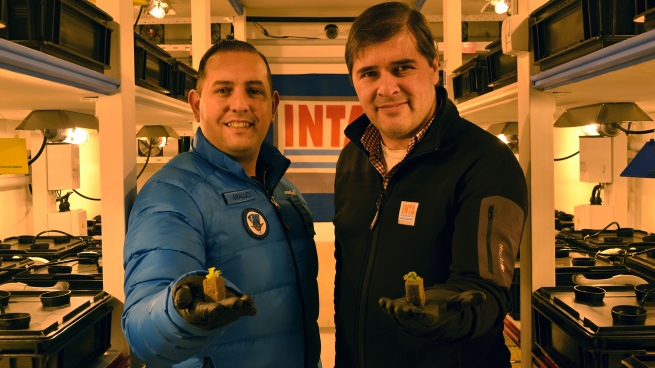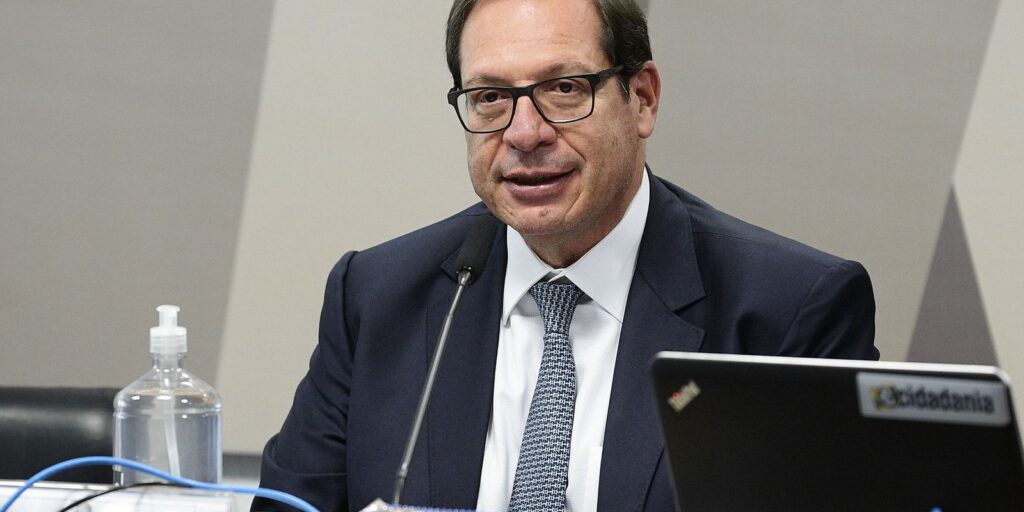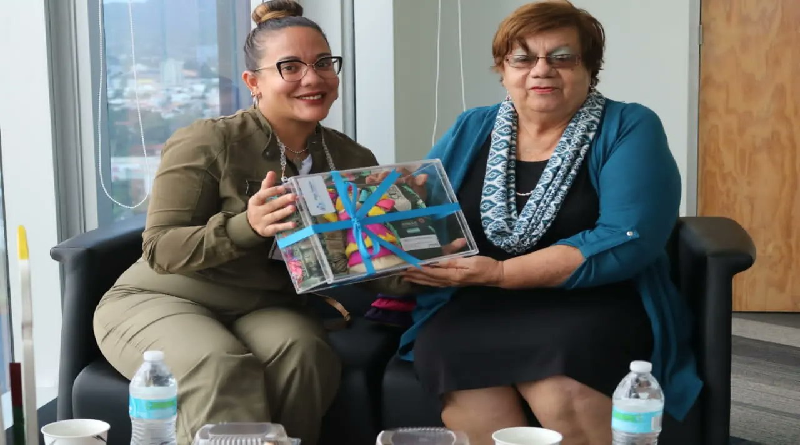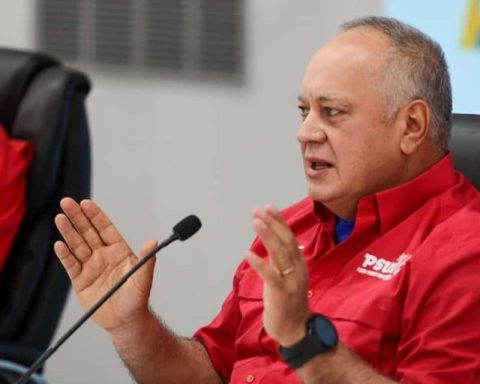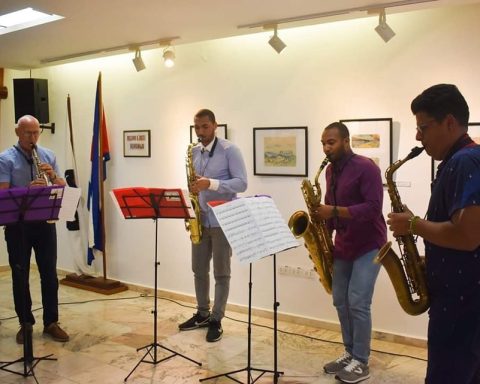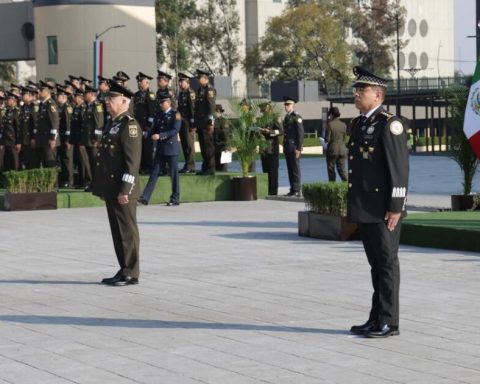Technicians from the Argentine Air Force and the National Institute of Agricultural Technology (INTA) began cultivation of two varieties of lettuce, arugula and parsley in the Antarctic Hydroponic Production Module (MAPHI) installed at the Joint Antarctic Base Marambio, with the aim to supply fresh vegetables to the staff of this almost inaccessible site between the months of April and November.
The project, which began producing the first fresh vegetables in mid-May after a trial began to evaluate the operation and calibrate the systems, is expected to be fully operational by the end of June.
The production is possible thanks to the implementation of a production technique in which it is grown without soil, in a liquid medium through which the nutritional elements are delivered to the plants; Among its main qualities are efficiency in the use of water, high compatibility with the automation of the production process and the optimization of the use of small spaces, being able to implement the production of crops in places with poor quality soils, low availability of water , or with adverse climatic conditions for production such as those presented by the Antarctic environment.
The boss of MAPHI Project by the Joint Antarctic Command (Cocoantar) is Vice Commodore Federico Vassalloand also the researcher from INTA and the National University of Austral Patagonia (UNPA), Jorge Birgiand assistant petty officer Cesar Ismael Araujo Pradoin charge of the Accident Prevention, Safety and Hygiene and Environmental division of Cocontar.
“The work is very intense and we experience it with great enthusiasm because we are producing the first horticultural plants in Argentine Antarctica”Jorge Birgi, INTA Santa Cruz researcher
Araujo Prado stated, in a dialogue with Télam, that “the project is organized around three fundamental pillars: a MAPHI M5 H production module installed at the Marambio base, a control and monitoring panel that, through telemetry, informs production conditions and the status of the system, and a training program for operators of the cocoantar responsible for producing”.
“The module is installed in a polar Antarctic climate, with an extreme photoperiod and average maximum temperatures that in July can reach -11°C and drop to -20°C; To overcome these limitations, the module has the possibility of control the intensity of light and the amount (total hours) delivered to the plants”, he indicated.
The soldier pointed out that “inside the temperature is controlled, adjusted to optimal levels to facilitate growth, and all the necessary nutrients for the normal development of crops are provided.”
“To monitor production conditions, high-definition cameras were installed that photograph the crops daily, temperature and relative humidity sensors, pH and electrical conductivity sensors, ultrasonic level sensors to measure the amount of water, available solutions and his temperature,” he explained.
In addition, the system is capable of surveying the electrical consumption and stability of the line, the amount of water that enters and the delivery flow to each production line. Regarding safety, the system can detect spills, smoke and flames, and report the situation to operators and monitoring nodes to solve any problems in the shortest time possible.
All the module electronics were designed and manufactured specifically for the projectconsidering the local availability of components and the capacities available on site.

From the Marambio Base, Jorge Birgi, INTA Santa Cruz researcher, who is together with his colleague Boris Díaz in the hydroponic module in charge of plant development, highlighted that “the work is very intense and we live it with great enthusiasm because we are producing the first horticultural plants in Argentine Antarctica”.
According to Birgi, they are in full completion of the last of three stages: “We did the hydraulic tests of the production system, installed the telemetry system and calibrated the sensors for crop monitoring,” he detailed, explaining that “with The first planting is testing the substrates, the seeds and the response of the plants to the nutrient solution”.
For his part, Boris Díaz, a reference point for water at INTA Santa Cruz, evaluates the quality of the water that enters the module in order to then use that resource as a basis for what the nutritional solutions which is also formulated by the specialist.
Both INTA researchers are at the Marambio Base in charge of monitoring the development of the plants, which implies the adjustment of light management and nutrient solutions, as well as the evaluation of the conditions of the water facilities and the calibration of the sensors necessary to monitor the operation of the production system.
The MAPHI comprises a hydroponic cultivation system without soil and doors inside a shipping container 6 meters long, conditioned with a three-layer insulation system and with heating based on electricity to withstand the low temperatures of the white continent.
With respect to biological inputswe worked with certified and treated seeds to guarantee their innocuousness, selected prioritizing their resistance to low temperatures.
The chosen species respond to the food demand of the base, since the main objective of the proposal is to improve the nutrition of the civilian and military personnel of the crews that operate there.
